RockShox Pike RCT3 - 2013 Fork
(discontinued)
| Where To Buy | |||
|---|---|---|---|
Free shipping on orders over $50 (continental U.S. only).
International shipping available. Some exclusions apply. |
Free shipping on orders over $50 (continental U.S. only).
International shipping available. Some exclusions apply. $199.99
|
||
Free shipping on orders over $50 (continental U.S. only).
International shipping available. Some exclusions apply. |
|||
Review by Jeff Brines // Photos by Patrick Nelson
RockShox has reintroduced the Pike for the 2013 season, and they've aimed it squarely at the Enduro and trail market. Like the kinda-sorta-cute girl who moved away in the 6th grade, she’s back for senior year, fully grown up and turning every head in class. The fork appears to offer an unprecedented blend of feather-like weight, stiffness and trail eating performance. But how did it stack up in real world testing? After several months of riding, here are the results...

Pike RCT3 Highlights
- Travel options: 26 or 27.5-inch 150mm or 160mm // 29-inch 140mm or 150mm
- Weight: 26-inch - 1835g // 27.5-inch - 1861g // 29-inch - 1876g
- Dual Position Air and Solo Air Spring Options
- External Rebound, Low-Speed Compression, and Three Position Compression (Open/Pedal/Lock) Adjustments
- Low Friction Single Seal
- Slotted Upper Bushings
- Asymmetrical, Magnesium, Disc Only Lower Legs
- Tapered Steerer Only
- Forged, Hollow 7075 Aluminum Crown
- New Maxle Lite 15mm Axle
- Black or White Colors
- MSRP $980-1085
Some Vital readers may remember the original RockShox Pike. It was one of the first single crown forks that really struck a balance between lightweight, long(er) travel and descending prowess. No, it wasn’t aimed at those riders looking to send every retaining wall and loading dock in sight (you know who you were) but then again it wasn't geared towards your spandex-clad XC crowd either. It was a fork built for bike riding before buzzwords such as "Enduro" or "aggressive all-mountain" even existed. It would seem the only carryover from the Pike of yesteryear to the current model is that it remains targeted at mountain bikers - the kind of rider who pedals to the top of a mountain and looks to have as much fun as possible on the way down.

Turning to the technological nuances for a second, the fork marks one of the more major evolutionary steps for RockShox over the past few years, including a new damper, revised seal system, updated air spring and re-engineered chassis.
The fork is controlled by a new emulsion-free closed damper dubbed the "Charger." Borrowing technology long seen in motocross and in certain competitors' products, the air-free bladder-based damper holds promise of better small bump performance, as well as more consistent and refined damping performance at lighter weight. Additionally, RockShox tuned the damper to feature a lighter ending-stroke rebound setting which they have named "Rapid Recovery." The objective here is to allow the fork to more quickly return to the top of its travel through larger successive hits and keep the fork from packing down. This provides the rider more usable travel, allows the wheel to more precisely track the ground in turns, ultimately giving the rider more control. Turning to the adjustments (pun intended), the fork features external rebound, low-speed compression and a three position compression lever that allows quick access to open, pedal, and lock settings.
The black-stanchioned, asymmetrical, 35mm chassis features a new 15mm Maxle light and has been re-engineered to be as light as possible without sacrificing durability or stiffness. RockShox shaved material where it is not needed and added material to higher stress areas, such as the disc brake side of the lowers. The end result is one of the lightest 35mm chassis on the market at 1835g for the 26-inch model.
In addition, the Pike features a new reduced-friction seal system that combines the oil seal and dust seal into one single-lip package. Less rubber rubbing up against the stanchion makes for smoother, more friction-free performance. Finally, the air spring has been revamped and can now be tuned to ramp up more quickly towards the end of the stroke when utilizing RockShox's "bottomless token" spacers that reduce the overall volume of the air spring. This can be useful for riders who are looking for more progressiveness from their fork.

Setup
The Pike was tested on a 26-inch Ibis Mojo HD. This is a bike I’ve gotten to know intimately over the past few seasons. Truth is, if we’re testing a fork, we might as well do the best we can to isolate that one single variable.
Setup was a cinch thanks to the air spring chart on the fork and its printed sag gradients. At 200-pounds body weight, I settled at ~105psi, four clicks of low-speed compression, and rebound damping that felt "right," somewhere in the middle of the range. Time to hit the trail...
On The Trail
The Pike was tested on nearly every trail in the Jackson, Wyoming area. From fast and flowy singletrack to steep and loamy root/rock strewn DH and jump-riddled flow trails, the Pike encountered a diverse range of trail conditions that were (almost) all accessed via human-powered ascending.
Early in the test two things were apparent. First, the fork is light - nearly 1/2 to 3/4-pounds lighter than most other forks in its class. Second, the fork is smooth. To date, it's the smoothest fork in the 140-170mm range I’ve ever tested. The lack of stiction can likely be attributed to the revamped air spring and revamped seal system. Worth noting, the fork has remained extremely smooth over the test period with only one lubrication oil change. I’m personally very averse to fork stickiness which leads to me changing the lubrication oil in my fork more than most might consider healthy; it's usually once every two weeks during the heart of riding season. I haven’t felt the need to do so nearly as often with the Pike.
On trail, the damper has a distinctly different feel when compared to other RockShox products. The stroke is more refined and controlled. The fork felt more active and livelier than expected. While this lead to the fork being extremely easy to preload and jump, it was initially a bit too skittish through chundry terrain with the fork wanting to kick back to the top of its travel a bit too aggressively for my liking. Adding two additional clicks of rebound damping fixed the problem and from there on the fork felt extremely balanced, yet remained active and very responsive to rider input.

Small bump performance was impressive and the fork kept its wits about it through medium and large hits as well. The fork did an extremely good job utilizing the available travel without unnecessarily blowing through it or feeling unsupportive. I’m not a World Cup downhill racer, and if I have 160mm of travel, I want to use 160mm of travel - but I want it used effectively and appropriately. The Pike did a splendid job here and often felt as if it had more than the specified 160mm of travel on tap. A well-tuned air spring and a very efficient damper working in tandem are likely the reason. Although the fork comes with air spring tuning capabilities, I generally like my spring curve on the linear end of things. Adding the "bottomless tokens" (volume spacers) did not at any point seem necessary for my riding style. Maybe if I go back to my loading dock-hucking days I’ll start using them...
In addition to a low-speed compression adjuster, the Pike features a three-setting dial that the rider can use to drastically change the amount of compression damping - from fully open to almost fully locked-out in three steps. I seldom found myself using this feature. If I was hammering out of the saddle on an extended climb or on the road, I’d go to the middle "Pedal" mode. On extremely smooth singletrack, such as the type I found during the only XC race I entered on this bike (still not sure why I did that), I was often in Pedal mode to keep as much out-of-saddle energy going to propelling the bike forward. Otherwise, during 95% of my riding I found myself leaving the fork wide open.

When things got hairy and the terrain became better suited for a proper DH bike, a bit of harshness and front wheel deflection was detected through the handlebars. It was as if the fork’s damping was overwhelmed and started spiking, or the lubrication system had completely dried up. I tried playing with both the air pressure and the low-speed compression. Nothing seemed to help. This was most noticeable under extreme braking or cornering loads and resulted in far more arm fatigue than one would expect from such a smooth and refined fork in those situations.
After a few weeks of this surprise "spiking", I decided to investigate a bit more thoroughly. Thinking it had something to do with bushing bind, I placed the front wheel of my bike against my truck tire, put a bit of lateral load on my handlebar and pressed through the travel. Sure enough, the fork was very difficult to cycle. Subsequent tests on a 29-inch Pike yielded the same notchy and sticky feel when the fork is loaded in this manner. In all fairness, many bushing-based forks are likely going to suffer the same fate. However, when compared to other single crown forks in its class, the Pike seemed particularly bad in this area. This may not be something you notice unless you push the fork into "extreme" terrain and/or are a heavy dude like myself. In more moderate trail riding environments, the fork did not often showcase this behavior. But still, the fork is billed as one of the top Enduro forks, which means it will also be pushed through more burly terrain from time to time. We recognize that, like anything, suspension performance is a constant give and take battle. A four pound fork isn’t to be expected to perform at near Boxxer-like benchmarks. However, in the context of this review, this is a point worth mentioning.
Despite what potential bushing bind issues may imply, the fork steers precisely, even though it features a 15mm thru axle. Although I’d prefer to see a 20mm thru axle, the fork felt only slightly less precise than other 35mm RockShox single crowns that do have a 20mm thru axle. It was so minimal, even under my heft, that I certainly wouldn’t call it a deal breaker. As a disclaimer, it is worth mentioning that the test bike was set up with carbon wheels, adding to the front end’s precision and possibly minimizing any torsional stiffness loss the 15mm axle may cause. Put another way, blindfolded, I’d be hard pressed to tell if I was on a 20mm or 15mm thru axle equipped fork. The perceptible difference is very negligible.

Long Term Durability
So far the fork has held up great. Yes, it's been through a few crashes and has encountered a fair bit of water, mud, dust, and loam. No, it was not babied. Although three months is hardly enough time to give much durability feedback, it appears, to this point, to be fairly robust.
It is worth repeating just how supple and smooth the fork is, even after months of riding with only one service to the lubrication system. Not needing to constantly rebuild the semi-bath component of the fork is a welcome change and keeps me riding more and wrenching less. RockShox also claims the Charger damper itself rarely requires service when compared to their other dampers. We expect it to provide seasons of performance without much of a hiccup.
The only point of contention from a durability standpoint is a bit of mild creaking coming from the crown/steerer assembly. In all fairness to RockShox, I am yet to own a 150mm+ single crown fork that doesn’t creak after months of use. It isn’t deafening and a few drops of lube to the uppers seem to quiet things down for a few rides. Rockshox chimed in and let us know this was only a problem on an early batch of product. As denoted above, I had the chance to get on a 29-inch version of the fork for the period of one month. I did my best to get the thing to creak but so far, so good. Absolutely silent. Thus, initial testing hints at Rockshox indeed having remedied this problem by now.

Things That Could Be Improved
Being that the creaking issue appears fixed, the Pike could be even better if two things were addressed: bushing bind and offering the fork in a 20mm configuration.
Although these two fixes may come at a slight weight penalty, I’m all for it. A bit of weight in the name of performance and durability isn’t a bad thing when it comes to real world riding. I’d be interested to see just how good this fork could perform if the engineers were allotted another 1/4 to a 1/2-pound.
What's The Bottom Line?
I’m a fairly critical reviewer. I don’t use the words "best in class" very often, but they certainly seem to apply here. At four pounds, it's the lightest of the bunch, and the new damping system, air spring and seals all work in harmony to give the rider a symphony of performance. In this reviewer’s eyes, it edges out everything else in the 160mm class thus far.
Although the fork could be improved in a few areas, it is still very, very good. If RockShox can improve the bushing bind issues, include a 20mm through axle option and keep the fork from creaking, I’d consider calling it perfect. Nonetheless, if you are a trail rider looking for top notch performance or an enduro racer trying to eek seconds off your lap times, take a hard look at this product. Indeed, it would appear the kinda-cute girl is all grown up, and she’s hotter than ever...
For more details about the Pike, cruise over to www.rockshox.com.
About The Reviewer
Jeff Brines didn't go on a real date until he was nearly 20 years old, largely as a result of his borderline unhealthy obsession with bicycles. Although his infatuation with two wheels may have lead to stuttering and sweatiness around the opposite sex, it did provide for an ideal environment to quickly progress through the ranks of both gravity and cross-country racing. These days, Jeff races Enduro at the pro level, rides upward of 150 days a year while logging over 325k of human powered ascending/descending on his bike. Bred as a racer, Jeff is more likely to look for the fastest way through a section as opposed to the most playful. Living in the shadow of the Tetons in Jackson, WY, Jeff works in financial intelligence and spends his winters as head ski gear guru and content manager over at earlyups.com.
6 member reviews
As a long-time Fox Racing Shox user, I never did like Rockshox forks as my Tora 302 died in a months time and the Fox Talas that replaced it made it clear that Fox makes stunning products, but today in 2014, it seems as if the roles changed.
The 160mm 26" Pike is mounted on a 2014 Santa Cruz Carbon Nomad with a Cane Creek Double Barrel Air CS. Prior to the Pike, I had a 2014 Fox 34 Float CTD FIT, until the aluminum bolt holding it together on one side snapped.
Compared to the Fox 34, I feel as if the Pike is in a different league. Not only is it stiffer and lighter, it also doesn't dive under braking (massive issue with the 34) and has more adjustments to fine-tune on a relatively simple platform with the RCT3 settings.
Riding is done at the Sunshine Coast and Coast Gravity Park. Out on the Coast trails, the Pike feels glorious through loam, rocks, boulders, and anything you throw at it. The most impressive part about the Pike is the amount of mid-stroke support and how it truly feels "Bottomless" with just a single token. The Pike soaks up whatever you throw at it and still maintains composure allowing you to track your front wheel better and simply go faster. It's scary how fast trail bikes can go now.
At Coast Gravity Park, where the 160mm Nomad may look a little small beside the sea of DH sleds, it feels surprisingly at home. Yes, I would have an easier time if I had a DH bike and would definitely be able to go faster, but the Nomad with the Pike is already so much fun that it never crossed my mind while riding CGP. During and after the endless shuttle runs, the Pike did not change in behavior and maintained its same buttery smooth, controlled stroke throughout the entire day of hard laps. I did manage to bottom it out once after hucking it to flat on a drop, but nevertheless, the Pike feels very at home in bike parks.
With Fox bouncing back with their revised Fox 36, the competition is starting to heat up again, but prior to the 36, the Pike was the only mid-travel fork I drooled for. Maybe I'll try the 36 one day, but the Pike works so well that I can't think of upgrading any time soon.
The Pike is set at 60-63 psi, 5 clicks of LSC, 5-8 clicks of rebound, and 1 Bottomless token.
0 comments
Post a reply to: One of the best trail/AM/Enduro forks out there
Easy to maintain
Good adjustablity
Light
Better seals
Lacks high speed compression adjustment
This is a review for the 2016 160mm RCT3 Solo Air Pike
So, what is noticeably different for 2016? Well, the initial action feels smoother and there is less static sag compared to previous models. New seals? Surprisingly, I am running this fork with one less bottomless token with less frequent bottoming compared to previous models. The lowers now have a gloss finish vice the flat finish found on last year's model.
Overall, there are some small but noticeable improvements made for 2016. Nothing to go out and ditch your old Pike for; however, welcome improvements nonetheless.
I can't wait to try the new Lyric next.
0 comments
Post a reply to: Better for 2016?
Super stiff for it's weight.
Easy to maintain.
Dual position rocks.
Sram customer service rocks!
Could have a little more adjustability.
No 20mm version.
As the title says, this fork can either be the best fork in the world, or rather just an okay one. All this depends on your riding style and preference.
If you are a true trail rider and light on your stuff, this fork can't get any better. It's light and stiff considering it's weight. It also feels pretty darn good. I'd look no further. If you are more of an aggressive enduro rider / freerider, I would recommend the new Lyric or Fox 36. Yes they are heavier but the adjustability of both of these forks as well as the plushness throughout all stages of travel are amazing. The question that one needs to ask themselves is, "Is the weight loss of the Pike worth the sacrifice of adjustability and overall plushness?" I know a few pike owners will read this and say inside their minds "What the hell is this dude talking about? I DH on my pike and It's just fine!" To this I will answer, the Pike is totally capable of handing pretty much anything you have enough balls to hit, but the new Lyric and Fox 36 will hit it better and smoother.
If you are a light weight rider, light on your gear, and/or am all about light weight, you won't find a better fork than the Pike.
If you are a heavier rider, harder on your gear, and/or want the best feeling fork and don't sweat over 100 grams, the Fox 36 or Lyric is a better choice.
(Note: I owned the Pike and sold it for a Fox 36 because I use my enduro bike as my DH bike as well and have never been happier.)
Bottomline, I five this fork 4 to 5 stars depending on what you are most interested in.
0 comments
Post a reply to: Best fork for some, Okay fork for others.
The fork works great when you find the sweet spot, until that moment you think you've been scammed and you think that all the good reviews are fake, or your fork is defective, or that Rockshox bribes.
But adjusting the pressure fine to my weight (70kg) and put a token, and then the fork becomes invincible against bottom out, but supple at the same time.
Regarding the Charger damper... well...I comes from Marzocchi, and i feel the Charger a little "stiff", "lazy" on the first rides, but once is break-in and on the dirt does its job well. Also mention that it has improved with the SKF seals, but i still prefer a bit the little more supple touch of the marzocchi's open bath dampers.
For my weight, the rebound and fixed high compression settings are spot on, but i feel the low compression on the soft side, i need to adjust it near to the closed position, about 2 o 3 clickscounter-clock wise, perhaps it influenced by the trails I frequent , that are quite steep.
Negative air chamber has not given me problems to this day, but would i have preferred the spring has always been used for this task, at the same time could use oil in the main chamber air instead of grease, which would give a little more sensitivity and better lube and prevent of heat build up, of the chamber and main piston seal, even at the cost of little more weight.
The worst: the finish,chipping just put the eye on.
Great, but not the better.
0 comments
Post a reply to: Great fork, but improvable.
I'm using Pike about half a year. I do rather downhill than uphill. The fork is very good, really smooth. But lastly the negative air spring begin to suck upper legs in. For about 50 psi the sag chart on upper legs wasn't visible at all. For greater pressures was better, but even with 120 psi I could bottomed it out with my hands. I gave it for warranty service yesterday, should be fine but it isn't so hard fork. This light weight have influence on its durability.
0 comments
Post a reply to: Buttery smooth but not so durable...
I have read and read and read about this fork and finally got a chance to test all the greatness, praise or whatever kudos someone gives it on my own. First thing i noticed is how this thing does what is supposed to and that was eat up the real world terrain. I rode this from smooth to loose trials here in Utah. I then took it for a spin in some chunder woods again it ate it up. This was the solo I was riding with and the stiffness was fine imo. Yeah a 20mm can be that much more of a benefit to some at a small weight loss so why not offer it to the crow that wants it. As the review states it holds through turns, burms and will last longer than any relationship you've been in given the quality of the engineering and the pockets of rockshox. It would be nice to see next yrs version come out like the new fox with a convertible model like fox's new 36 so that way it could be a good fix for both worlds by using a simple shim. This forks works just like it is supposed by holding up in the areas needed and giving you the small bump you need for the basic trails.
0 comments
Post a reply to: rock the shox pike
Specifications
Wheels: 26", 27.5", 29" // Lowers: Magnesium, Disc Only // Maximum Rotor Size: 200mm
| Where To Buy | |||
|---|---|---|---|
Free shipping on orders over $50 (continental U.S. only).
International shipping available. Some exclusions apply. |
Free shipping on orders over $50 (continental U.S. only).
International shipping available. Some exclusions apply. $199.99
|
||
Free shipping on orders over $50 (continental U.S. only).
International shipping available. Some exclusions apply. |
|||


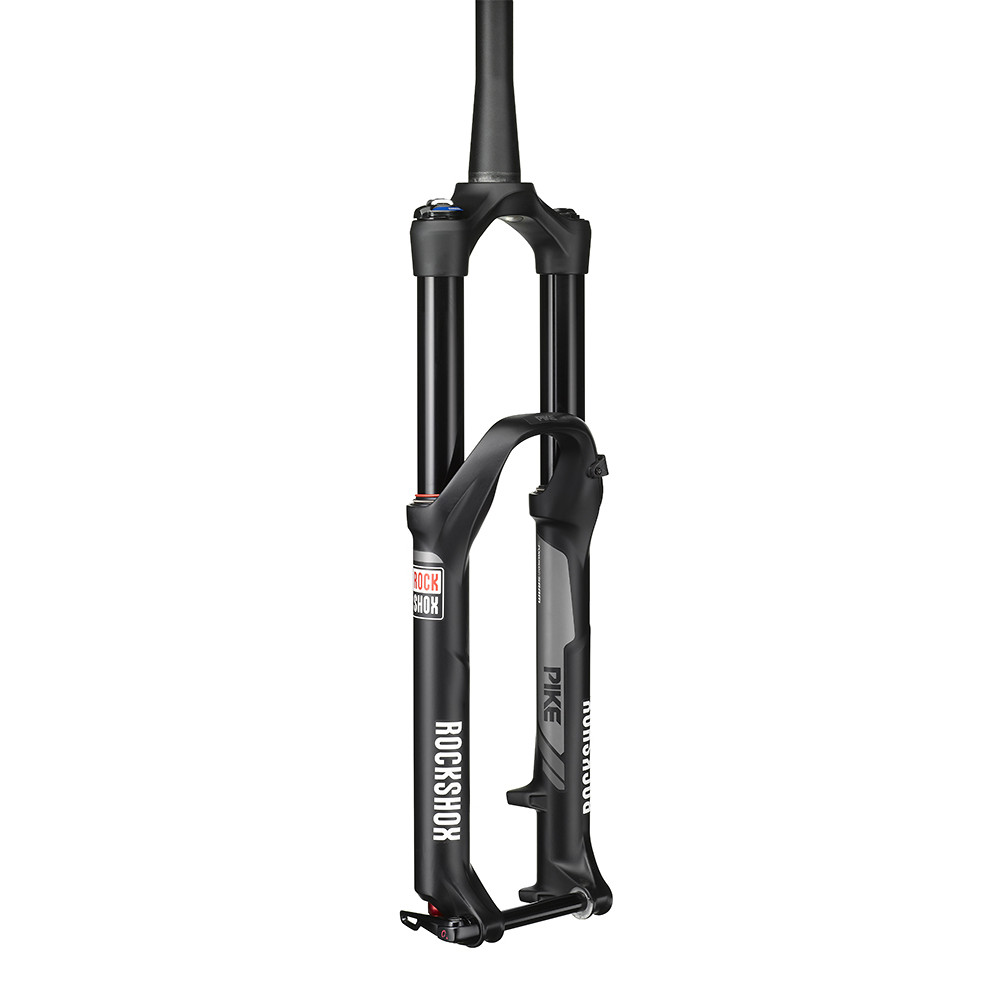











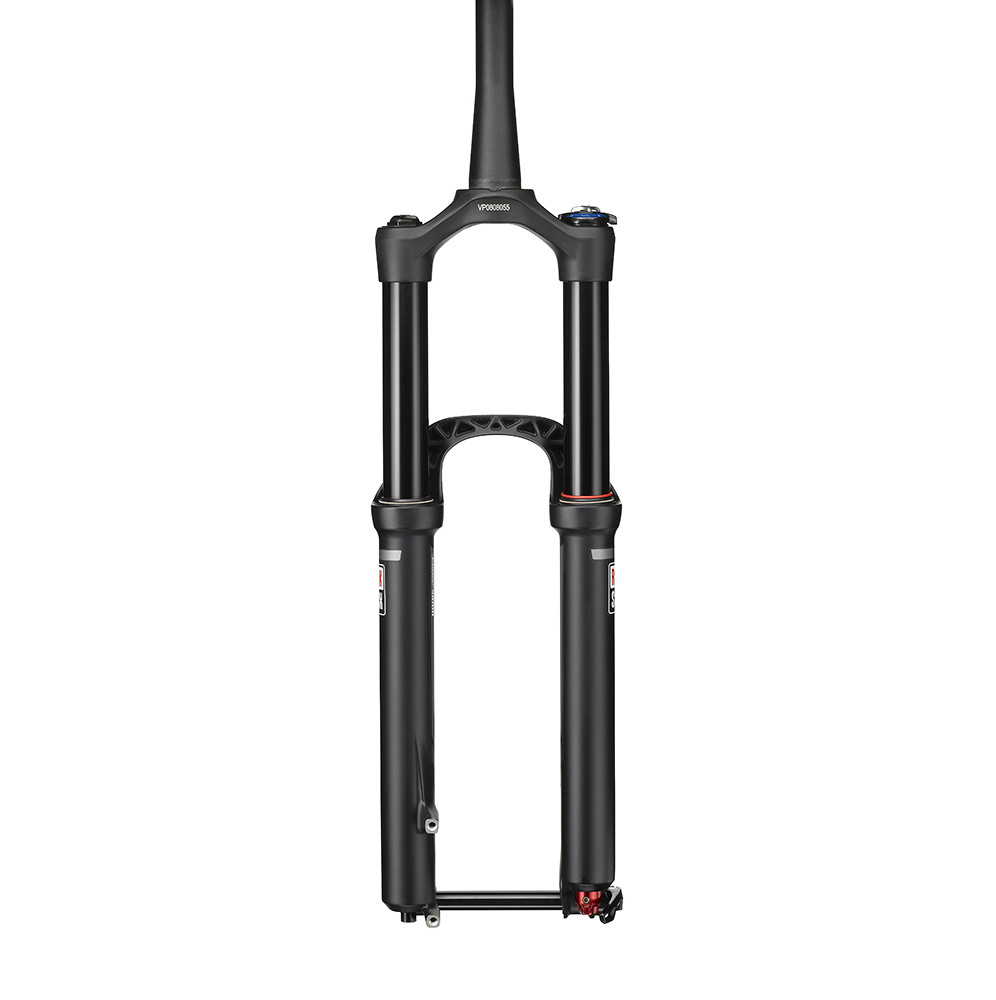




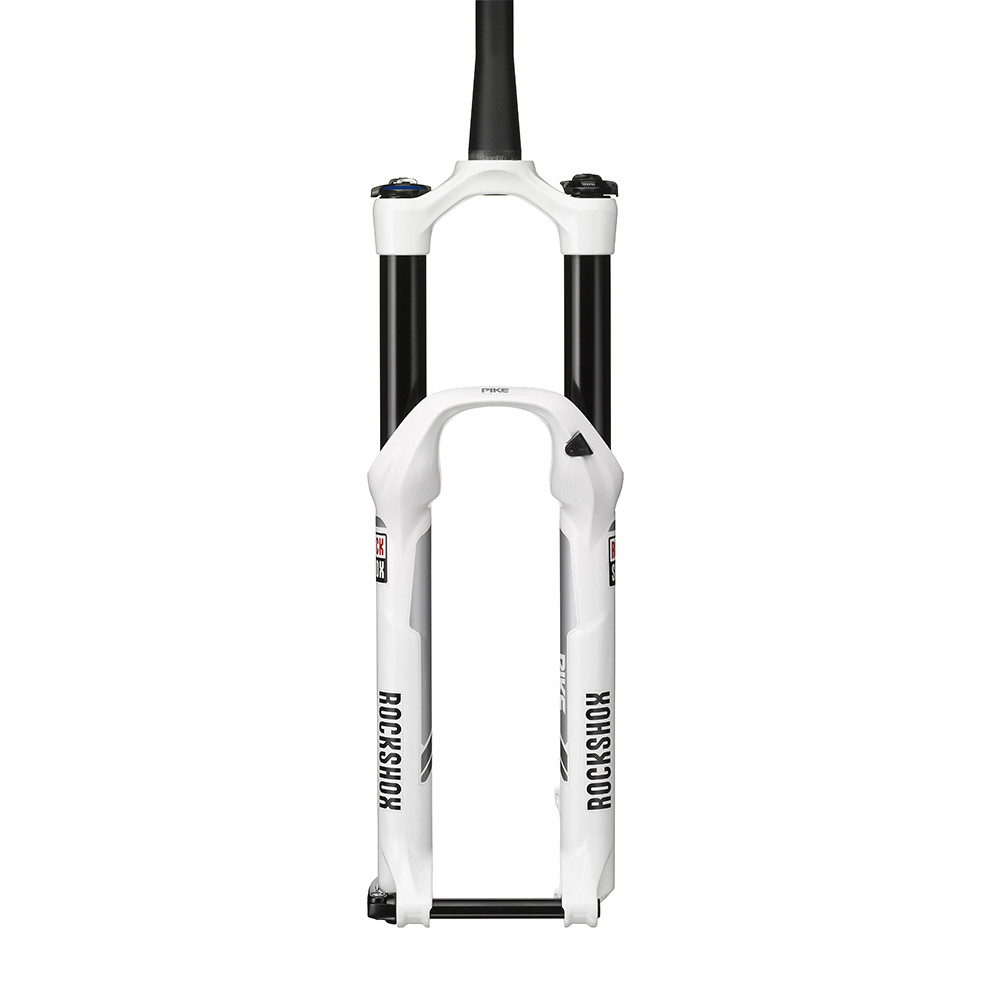

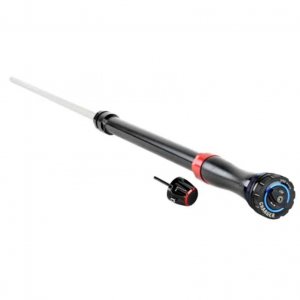
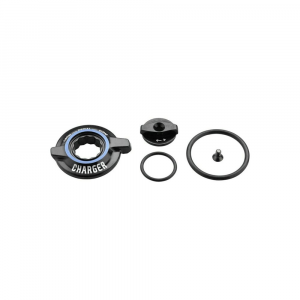
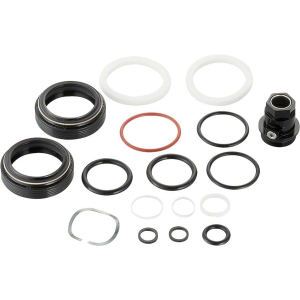

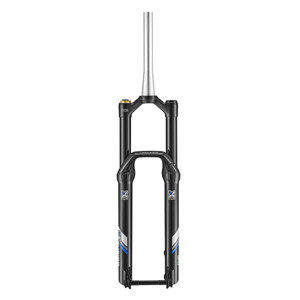



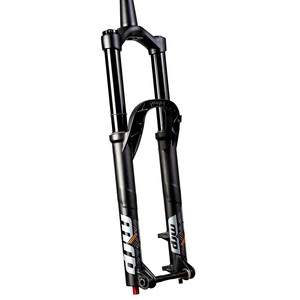
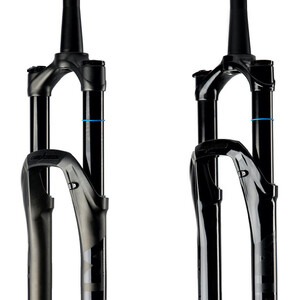
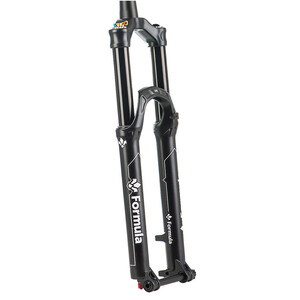
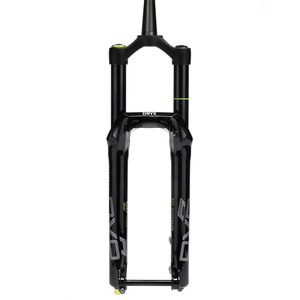







24 comments
Post a reply to: Tested: RockShox Pike RCT3 Fork